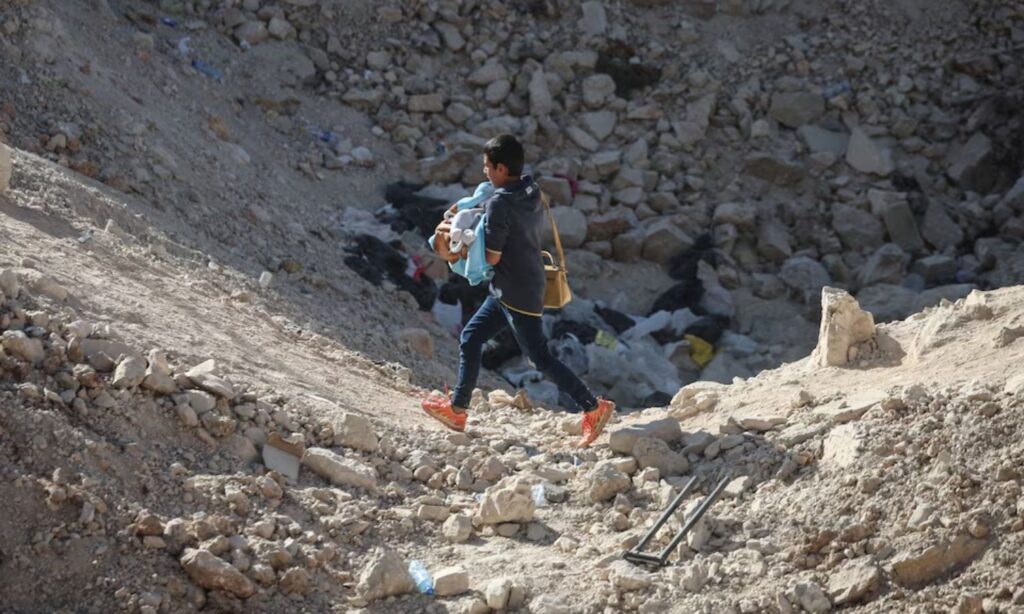The United Nations Office for the Coordination of Humanitarian Affairs (OCHA) stated that ongoing airstrikes along the Syrian-Lebanese border are hindering humanitarian response operations and making border crossings more dangerous.
Edem Wosornu, the Director of Operations and Advocacy at OCHA, indicated in her briefing to the Security Council on the situation in Syria, on Thursday, November 21, that damage from airstrikes on the Jdeidet Yabous crossing in the Rif Dimashq and the Jousiya crossing in rural Homs with Lebanon has prevented vehicles from crossing.
The airstrikes have impeded relief efforts, reducing the movement of aid workers, especially to parts of Homs, and damage to border crossings has forced trucks to take longer routes, contributing to increased costs of goods.
Israeli airstrikes on the Jousiya crossing have occurred near facilities of the United Nations High Commissioner for Refugees (UNHCR), and in one case, they caused damage to the border commission center.
Israel has intensified its airstrikes on the Syrian-Lebanese border over the past two months in an attempt to cut off supplies to the Lebanese Hezbollah from Syria, extending to both official and unofficial crossings between the two countries.
Wosornu noted that the Jdeidet Yabous crossing accounted for half of the arrivals from Lebanon to Syria due to Israeli airstrikes on Lebanon.
People, including women, children, and other vulnerable groups, have been forced to cross the two crossings on foot or find longer, more dangerous alternative routes.
Regarding the countries’ response to the UNHCR’s call to raise $324 million at the beginning of October, the UNHCR has only received $55 million.
The weak response coincides with the influx of displaced persons from Lebanon into Syria, a country that needs assistance for 16.7 million people.
Some reports have mentioned the return of some Lebanese families to Lebanon due to the lack of services and poor living conditions in Syria, according to the Director of Operations and Advocacy at OCHA.
The number of arrivals from Lebanon to Syria since September 24 has reached 557,000 people, according to a UNHCR report, 63% of whom are Syrians while 37% are incoming Lebanese.
More than half of the arrivals are children, and there are more than 7,000 pregnant women, with approximately 40% of arriving families being led by women.

